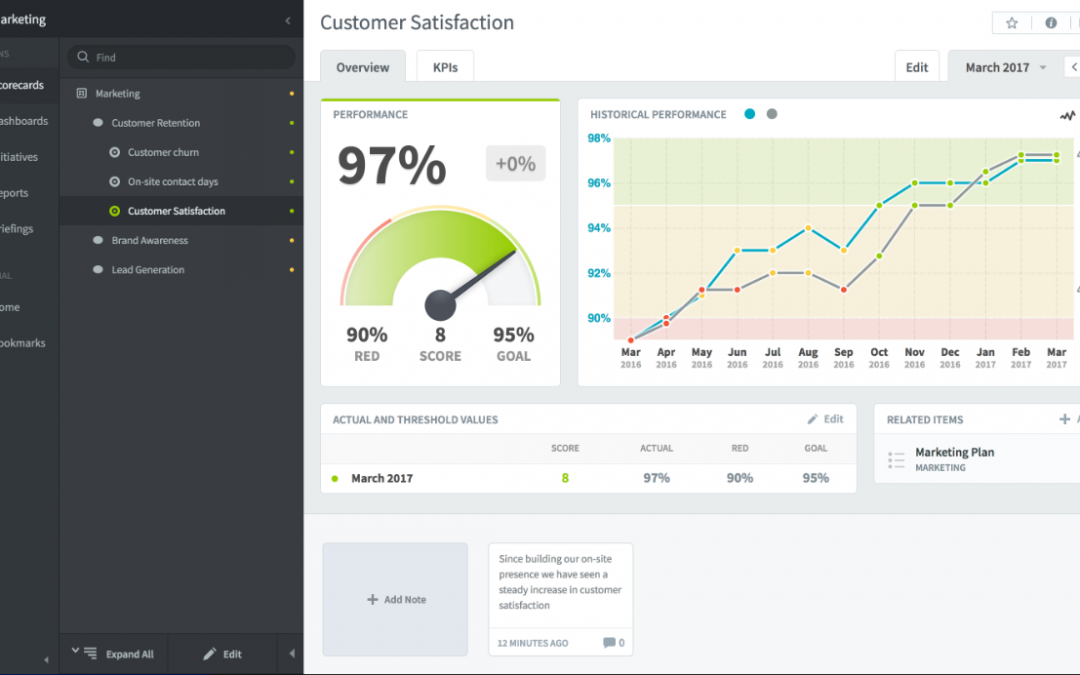Creating Useful KPIs – Some Useful Checks
Take a look at QuickScore the worldwide acclaimed KPI Manager.
If you are reading this blog it is because you are interested in measuring your business’ progress. But you are probably measuring too much. You may question whether all of your measurements are useful.
Ask the question: Are your KPIs (Key Performance Indicators) really KEY Performance Indicators? Or are they a mix of key indicators, operational indicators and a sprinkling of historical measures?
It is often the case that monthly reports require ‘supplements’ to provide insights. But how often are ‘supplements’ removed from the report because they are no longer useful? Rarely. We tend not to remove KPIs because the information may become useful again. How frequently do you ask the question:
Do I have too many KPIs and are they still useful?
A Key Performance Indicator is a special type of measurement. The clue is in the title, it is KEY to the business or organisation. But key in what sense? KPIs are key to measuring whether or not you are succeeding and more importantly to whether or not you will succeed. Your KPIs should be directly related to your goals and strategy.
Three simple tests
There are three simple tests to check the usefulness of a Key Performance Indicator:
- Is the KPI related to a business objective? If it is not, then it is not a KPI. It may be a very useful operational measure. It may be an essential safety measure. When you use a KPI to drive a business forward it must be connected to a business objective.
- Is the KPI related to an improvement activity? KPIs are not used to measure the progress of projects. They are used to measure improvements. The only thing you can say about a project is that it will start, it will happen and it will end. There is no guarantee the project will help an organisation succeed. For example, it may be very desirable to install and use a Customer Relationship Management (CRM) system but the act of putting the system in place will not determine success. Only the outcome of putting the system in place will do that. The KPI associated with a new CRM system might be a Customer Satisfaction Index which measures an improvement activity.
- Is the KPI owned by an individual? If a KPI is not owned by an individual then no one is responsible/accountable for a) collecting and reporting on the data and b) looking at ways to improve the KPIs performance. It follows then that the KPI is not particularly important and therefore not key to the business or organisation.
By applying these three simple tests to your KPIs on a regular basis you will be able to concentrate on what is important in your organisation. Our free white-paper How to Create Meaningful KPIs provides much more information on this subject.
Structured Approach
We would add that businesses should have a structured approach to managing KPIs. It is essential. If your key measurements are held in a spreadsheet then you are living in the past! A spreadsheet is a great personal management tool as it allows you to quickly organise and interrogate data. It is not a good business tool in today’s highly competitive, creative and mobile environment. For KPI management you need to take advantage of dedicated KPI manager that can reached by everyone at anytime, anywhere. There are a few available, but be sure to checkout QuickScore
Creating Useful KPIs – An Intrafocus Insight.


